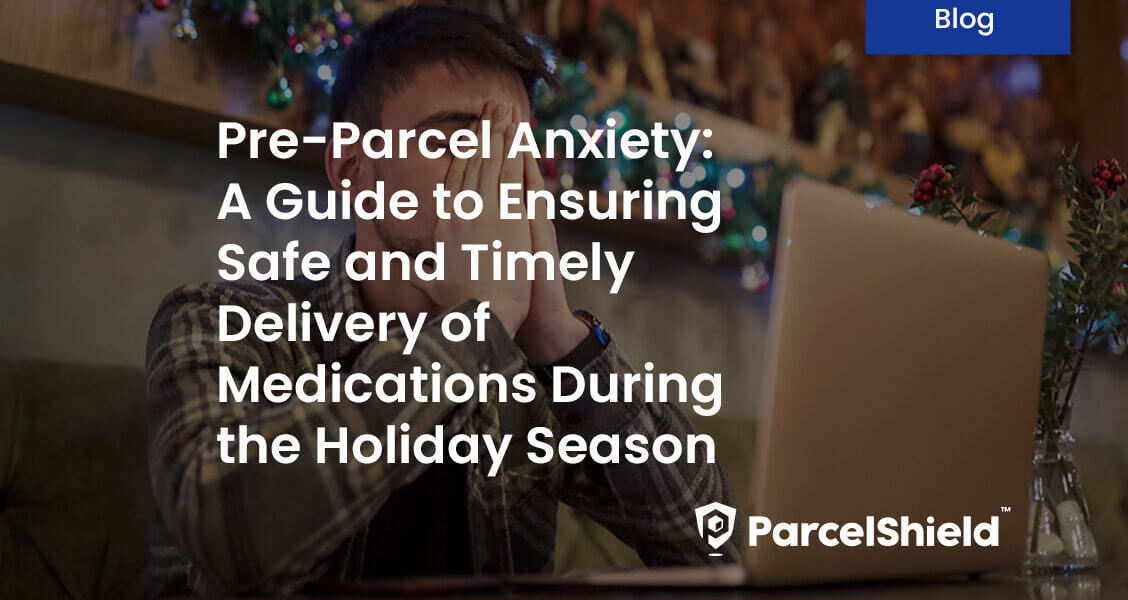According to the Urban Dictionary, “pre-parcel anxiety” refers to the nervous anticipation felt when awaiting a package delivery from carriers like USPS, UPS, or FedEx, often marked by repeated checks at the front door for any signs of the courier’s arrival upon detecting any sound or sight that may indicate their presence.
Approximately 90% of consumers express concern regarding the potential theft of holiday packages, with over a quarter of the U.S. population articulating “extreme” or “high” levels of worry.
The concern over timely arrival escalates from mere inconvenience to a serious matter concerning essential medications.
The Anxiety Before Parcel Delivery Poses Stress for Both Patients and Pharmacies
- An unfavorable shipping encounter, including delayed arrivals or misplaced parcels, can adversely affect the patient’s comprehensive shopping experience and health outcome.
- Eighty-seven percent say it makes them less likely to shop with that retailer or healthcare provider again
- The holidays can often bring about a surge in activity for call centers and patient assistance. In such times, the significance of interactions is heightened more than ever.
Leverage Technology to Ease Pre-Parcel Anxiety for Patients
Here’s a simple five-step guide to ease your worry about parcel preparation from beginning to end.
-
Before you ship, forecast the delivery times and anticipate any delays specific to the carrier.
Manually checking each package for potential disruption from start to delivery can be challenging and time-consuming.
Nowadays, artificial intelligence and machine learning can predict risks using over two decades of detailed medication delivery data and disruption knowledge. This provides real-time insight into delivery risks, regardless of carrier, and helps prevent package issues before they occur.
Specialty pharmacies can prevent package delays by using predictive analytics before shipping medication. This could save a lot of time, money, and stress.
-
Engage patients throughout the package’s journey.
During the entire package delivery process, it is important to maintain clear and active communication. This helps to build trust and reduce stress levels for the patient.
Use smart, ahead-of-time notification tools like emails, texts, and phone calls. These tools help keep patients updated throughout the delivery process, especially if package issues or delays occur. By setting clear expectations, you can increase customer engagement and alleviate any concerns they may have before receiving their package.
-
Give patients and customer service teams the tools to monitor real-time package shipments.
According to a recent UPS study, 96 percent of shoppers actively track their purchases as they await their arrival.
Rather than relying on delivery services, equip patients with immediate communication to simplify tracking information from UPS, FedEx, and USPS. Offer thorough, easy-to-understand, and actionable data.
By providing proactive tracking mechanisms, you can ease concerns about product misplacement, lateness, or theft while strengthening your brand’s relationship with customers.
From the patient’s perspective, timely and accurate medication delivery is crucial for the pharmacy to ensure. Why take risks?
-
Provide remediation solutions following significant delays or service disruptions.
The item in transit is not merely a package but represents a patient. Ensuring timely medication delivery, mainly when it requires refrigeration or other time-sensitive, life-critical elements, is paramount for patient well-being. The phrase “your package is stranded” is unacceptable in such circumstances. The importance of a “last-mile” courier service becomes evident in situations like this.
Selecting a courier that is HIPAA-compliant, medically certified, and has professional 24/7 representatives is crucial. It’s important to remember that couriers represent your brand in these situations.
-
Document every order to successful delivery.
In light of escalating payer audit activities, logistical industry challenges, and soaring drug costs, it’s crucial to have the capacity to generate delivery confirmation and any requisite paperwork for prescription order reimbursement.
Prevent expensive write-offs by standardizing your proof-of-delivery documentation and data demanded by payers, including Medicare and Medicaid. Request daily audit risk reports that include a summary of packages that comply with or fail to meet proof-of-delivery standards. This approach gives pharmacies ample time to secure patient delivery confirmation before an audit.
Leverage the capabilities of predictive technology, immediate package tracking, and enhanced transparency throughout the package delivery process. Administer tailored patient-focused communications, pinpoint parcels in jeopardy, and offer the capacity to intervene or salvage a package.
By doing this, specialty pharmacies can mitigate concerns before package dispatch and enhance customer satisfaction – from shipping to the patient’s front door – while diminishing expenses and augmenting operational effectiveness.


